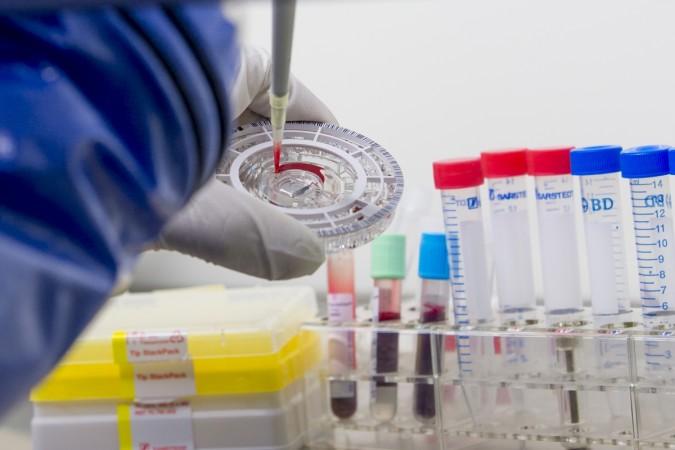
The development of the experimental vaccine, developed in Canada, for the treatment of the Ebola virus, can be traced back to the Cold War, according to scientists in Canada.
Earlier this week, the World Health Organization (WHO) gave the green light for the use of experimental drugs on the victims of the Ebola virus from the West African countries of Guinea, Liberia, Sierra Leone and Nigeria. Soon after this announcement by the WHO, the Canadian government announced that it would donate around 800-1,000 doses of this vaccine to use in Africa.
This topic has caused a lot of debate over the past one month, on the ethical aspects of the use of experimental drugs – whether an untested drug should be tried directly on the patients without clinical trials, or whether the medical community should hold back from using these drugs on hundreds of people who have contacted a disease that has no cure, and are currently facing death.
However, the origins of the research that went into the making of this vaccine are even more interesting from a humanitarian perspective.
The Ebola vaccine was invented in the small Canadian town called Prairie city, which has the only lab in the country that can handle level four pathogens (or BSL-4 pathogens). Before this lab was established, all the diagnostic tests in Canada were sent to labs in the US. The diagnosis would often take a lot of time. Hence, the Canadian government started its planning to set up a lab by the early 1980s. Hence, the Winnipeg lab was established.
The Ebola vaccine research was headed by Heinz Feldmann, from Marburg, Germany. A virus similar to the Ebola virus had broken out in 1967, in Marburg, called the Marburg virus. This had prompted him to find a medicine for the Ebola virus. Feldmann was the main influence behind Canada developing the experimental drugs.
"Research into Ebola is not something that we've done well on globally. If it was going to be done, it wouldn't be done in the countries most affected by it because they don't have the research infrastructure," said Allison McGeer, Director, Infection Control at the Mount Sinai Hospital, in Toronto, to Reuters. "Canada has a history in these things. Don't forget Connaught Laboratories."
The Ebola virus is not as rampant in North America. Even in Africa, it had not killed as many people, before the 2014 outbreak. Hence, the research on this virus does not get much importance (or funding) in the universities of Europe or America. So what prompted the start of this research on the Ebola virus in Canada?
Well, the experts believe that it is the cold War that has started this. In 1976, there was a suspected case of Lassa fever in Toronto, that brought panic down on the city. The health authorities had quarantined many of its staff, and sent their blood samples to the labs in the US to be tested. The tests revealed that none of them had the fever, after which they were all released.
Both the US and the Canadian governments had received reports that the Soviet Union were planning a biochemical attack, and that they have weaponized the Marburg and the Ebola virus, according to experts. After these reports, the government grants for the research had increased manifold.
Even the 9/11 attacks on the World Trade Centre in New York triggered an increase in funds for the research of these vaccines. Canada had, in fact, developed this experimental drug by 2005, when a team from the Winnipeg lab, along with collaborators from the US, France and Germany, had published the results of this vaccine in the Nature Medicine Journal.
The journal published that these vaccines seem to work perfectly in non human apes. However, this was never clinically tested, as the virus was non-existent in these countries.

















